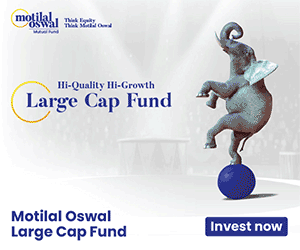Tax reform would increase the likelihood of higher long term interest rates
BFSI Industry Interview

Mr. Robert F. Baur, Ph.D. – Executive Director Chief Global Economist
Bob is executive director and chief global economist for Principal Global Investors.
In these capacities, he establishes and directs global economic policy and strategy, oversees and conducts macroeconomic and quantitative research, forecasts economic trends and anticipates market movements, and advises the investment staff in making economically sound investment decisions. Bob also directs macro-economic research for Principal Portfolio Strategies, an asset allocation boutique of Principal Global Investors.
He joined The Principal in 1995, and prior to his current role he was global head of trading for Principal Global Investors.
Bob received a Ph.D. in economics and a bachelor's degree in mathematics from Iowa State University. He also completed post-doctoral study in finance and economics at the University of Minnesota.
Bob has numerous speaking engagements in the U.S. and around the world. He is frequently quoted by the financial news media and appears regularly on CNBC and Bloomberg TV.
The US stock market set record high after the passage of Trump’s tax cuts. What is your expected long term impact of the tax cuts on the US economy and stocks?
We expect that if tax reform is enacted, it could add up to 0.5% to US real GDP growth for a year or so and perhaps raise productivity growth at the same time, all though increased investment. It could extend the business cycle for a few quarters. It might not be helpful for the stock market, as the current high valuations are based on expectations of continued low inflation and low interest rates. Stronger US growth would make a case that both inflation and long-term interest rates should be higher.
Emerging markets in Asia have so far been relatively less affected by the US tax cuts, but there is a view among some economists in India that Trump’s tax cuts may hurt emerging markets, as global investors will find US stocks and money parked in other markets will flow back to the US. There is a contrarian view that the tax cuts may benefit emerging markets because higher profitability of US corporations can result in higher foreign investments. Please give us your thoughts on the near term and long term impact of the tax cuts on emerging markets?
We feel that rising long-term developed country interest rates would not be helpful for EM and that is the likely result of the current robust global economic expansion. Tax reform would increase the likelihood of higher long-term interest rates. It’s more about interest rates than it is about the strength of the US dollar. Actually, the dollar will likely start to weaken. It’s interesting that the USD did not rise during the stock market exuberance about tax reform.
Emerging market currencies are facing headwinds after the tax cuts. Is there significant upside for the US dollar versus emerging market currencies in the near term?
Not likely; if the dollar were going to strengthen materially, it likely would have done so already. With the ECB about to start to normalize policy and the BOJ likely to follow sometime maybe the second quarter of next year, the dollar will likely weaken.
Bond markets had little to cheer in the last 6 months or so. What is your outlook on the bond yields in the US and emerging markets in the near to moderate term?
It’s a conundrum; the world economy is robust; the stock market is surging higher; yet government bond yields are at depression era lows. The global economy returning to normal suggests that bond yields should begin to return to normal. We look for higher long-term bond yields.
Many economists in India were expecting a Fed rate hike even without the tax cuts. What is your outlook on the Fed’s monetary policy in 2018 and how it may impact emerging market bond yields?
We look for a hike in December and one in March. Any more hikes in 2018 will depend on the stock market. If there is a significant correction as could happen if long-term bond yields rise 50 or 75 bps, the Fed would turn nervous and wary and likely slowdown its normalization.
Emerging market stocks had a great year with the MSCI Emerging Market Index up nearly 30% on a year to date basis, easily outperforming MSCI World Index. What is your long term outlook on emerging market stocks? Will they continue to remain attractive for investors?
Likely not in general if long-term interest rates rise as we expect. The growth is surely there, but higher rates will be a problem for EM.
The views expressed and information herein are independent views of the interviewee and for informative purpose only and under no circumstances should be construed as an opinion or Investment advice. The information contained herein is not intended to be an offer to seek solicitation for purchase or sale of any financial product or instrument. Investment involves risk.
As an investor you are advised to conduct your own verification and consult your own financial and tax advisor before investing. The Sponsor, Trustee, AMC, Mutual Fund, their directors, officers or their employees shall not be liable in any way for any direct, indirect, special, incidental, consequential, punitive or exemplary damages arising out of the information contained herein.
Mutual Fund investments are subject to market risks, read all scheme related documents carefully.
Recent Interviews
-
In conversation with Mr Vaibhav Shah Head Products: Business Strategy & International Business Mirae Asset Mutual Fund India
Apr 18, 2025
-
In conversation with Mr Kaustubh Sule Senior Fund Manager Fixed Income with Groww Mutual Fund
Apr 18, 2025
-
In conversation with Mr Abhishek Tiwari Chief Business Officer of PGIM India Mutual Fund
Apr 5, 2025
-
In Conversation with Mr Akhil Chaturvedi Executive Director & Chief Business Officer with Motilal Oswal Mutual Fund
Mar 26, 2025
-
In conversation with Mr Rohit Seksaria Fund Manager Equity with Sundaram Mutual Fund
Mar 7, 2025
Fund News
-
Axis Mutual Fund joins ONDC Network to Expand Access to Mutual Fund Investments
Apr 18, 2025 by Axis Mutual Fund
-
Nippon India Mutual Fund launches Nippon India Nifty 500 Quality 50 Index Fund
Apr 18, 2025 by Advisorkhoj Team
-
Nippon India Mutual Fund launches Nippon India Nifty 500 Low Volatility 50 Index Fund
Apr 18, 2025 by Advisorkhoj Team
-
RBI Monetary Policy: RBI changes policy stance and lowers rate
Apr 9, 2025 by Axis Mutual Fund
-
Kotak Mahindra Mutual Fund launches Kotak Nifty Top 10 Equal Weight Index Fund
Apr 7, 2025 by Advisorkhoj Team




